Even if you’re not an SEO expert, you probably have heard of Google’s search operators.
These operators allow you to expand on and filter your search terms, by selecting specific results and keyword combinations.
In our opinion, these operators can be useful not just for SEOs, but for every person who uses Google to find information.
In this article we’ll go through the main search operators that you can use in Google. Read on to find out.
Google Search Operators
Quotes
The quotation marks (“”) operator will only present the results that are an exact match for the search term. This will refine your search results to precisely what you are looking for, in this case, using a long tail keyword.
“Can cats drink cow milk”
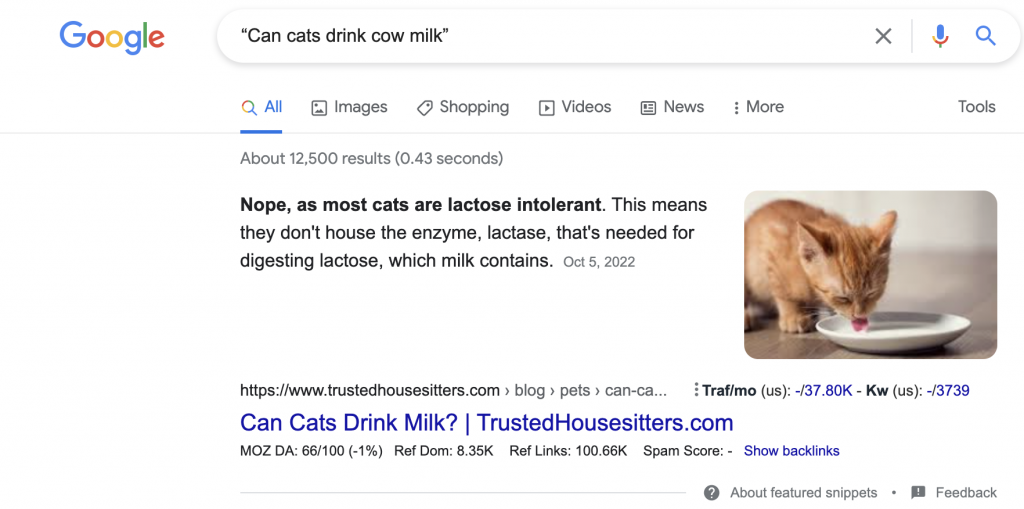
Pipe Symbol
The pipe (|)operator will give you results for either dogs OR cats (you can also use the word OR rather than the | operator), or both in the same page.
Dogs | Cats
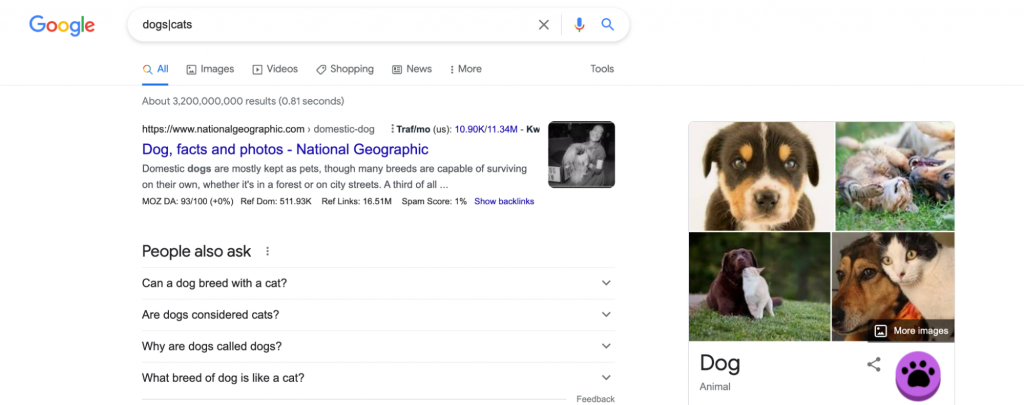
Brackets
The brackets () operator will show you results for any of these three cat breeds, or all of them in the same page. As per the previous example, you could also use (Siamese OR Bombay OR Russian Blue) Cats for the same result.
(Siamese | Bombay | Russian Blue) Cats
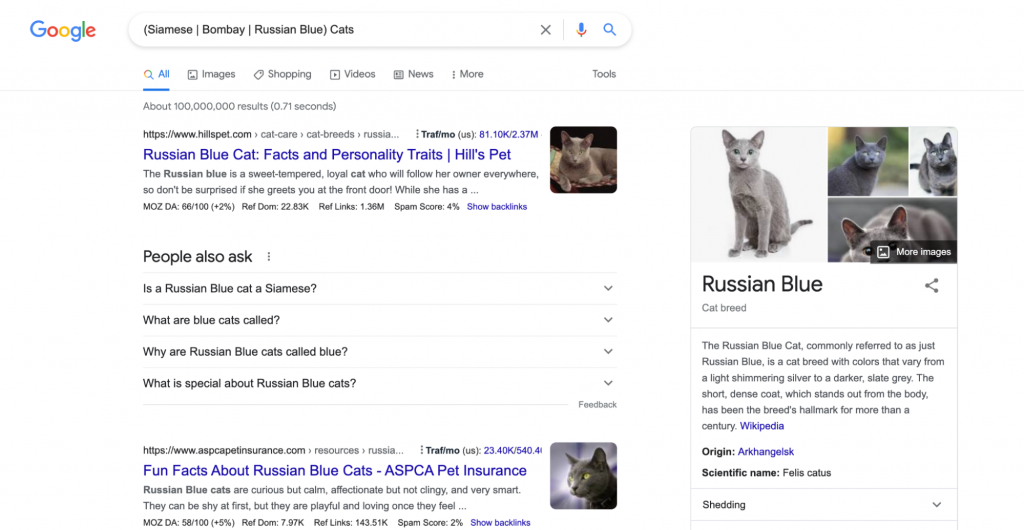
Minus Sign
The minus sign (-) limits your search results to exclude what’s after the sign. In this case, we would find pages about purebred cats, but not the Sphynx breed.
Purebred cats -sphynx
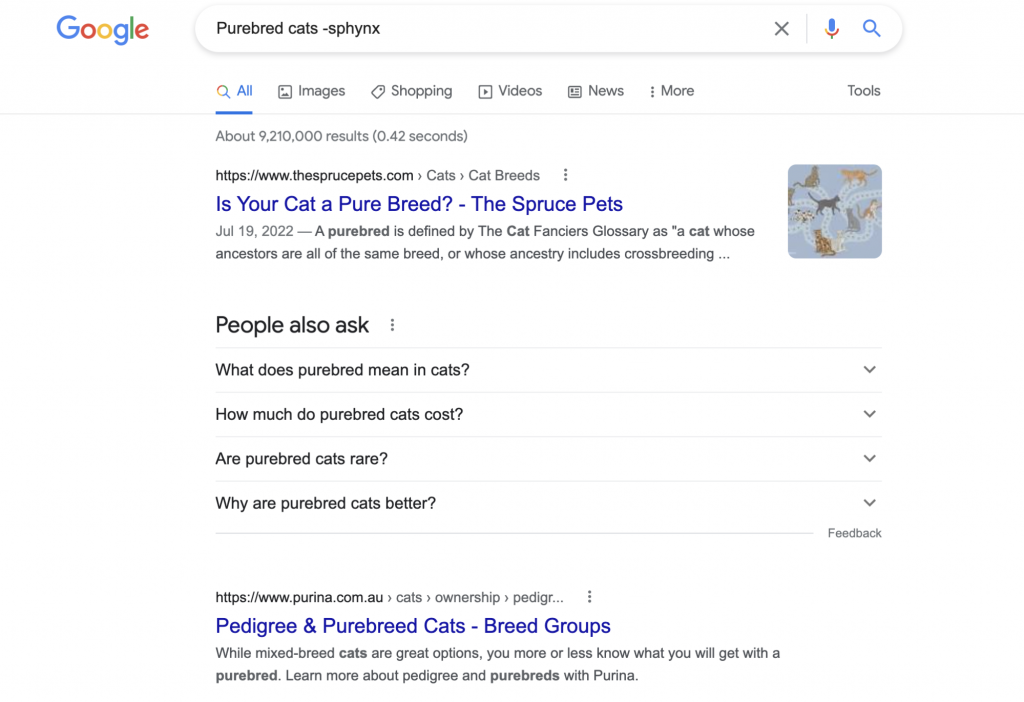

This cat is obviously sad for being left out.
Asterisk
The asterisk (*) operator is like a wildcard, and it works especially well when you are looking for a quote but do not remember all of it. The results will include the other terms and something that Google deems suitable to fill in the gap according to the options in the SERPs (search engine results pages).
Also, the * operator must be accompanied by the “” operator for it to work properly.
“Soft kitty, * kitty”
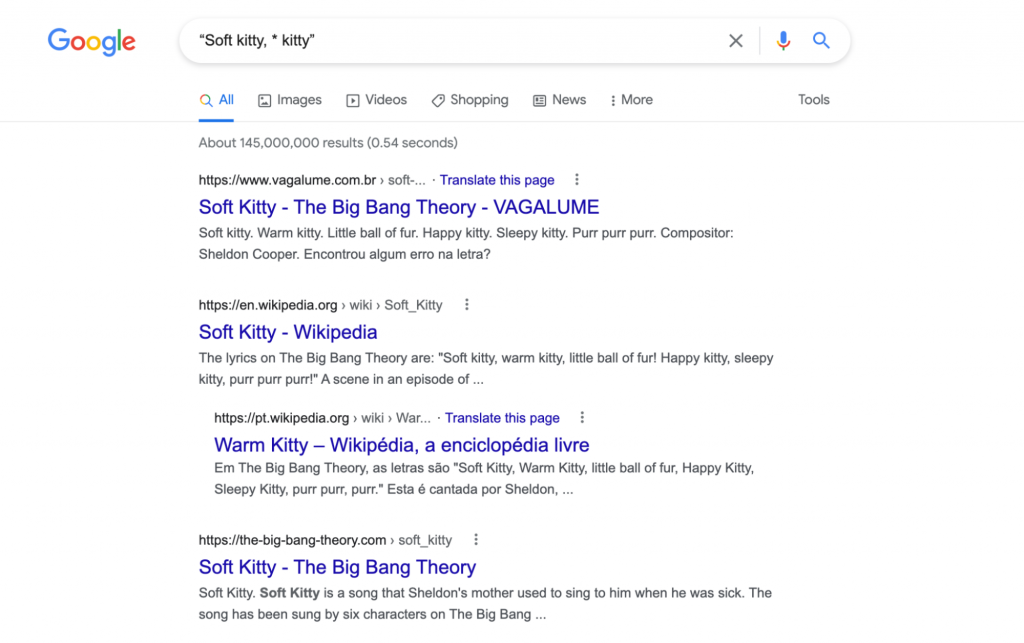
Dollar Sign Operator
The $ operator is especially useful if you are looking to purchase something – and if dollar is your currency. In this case, we would be looking for Sphynx cats at a price of $1000. There is no other operator required for this one to work.
Sphynx cat $1000
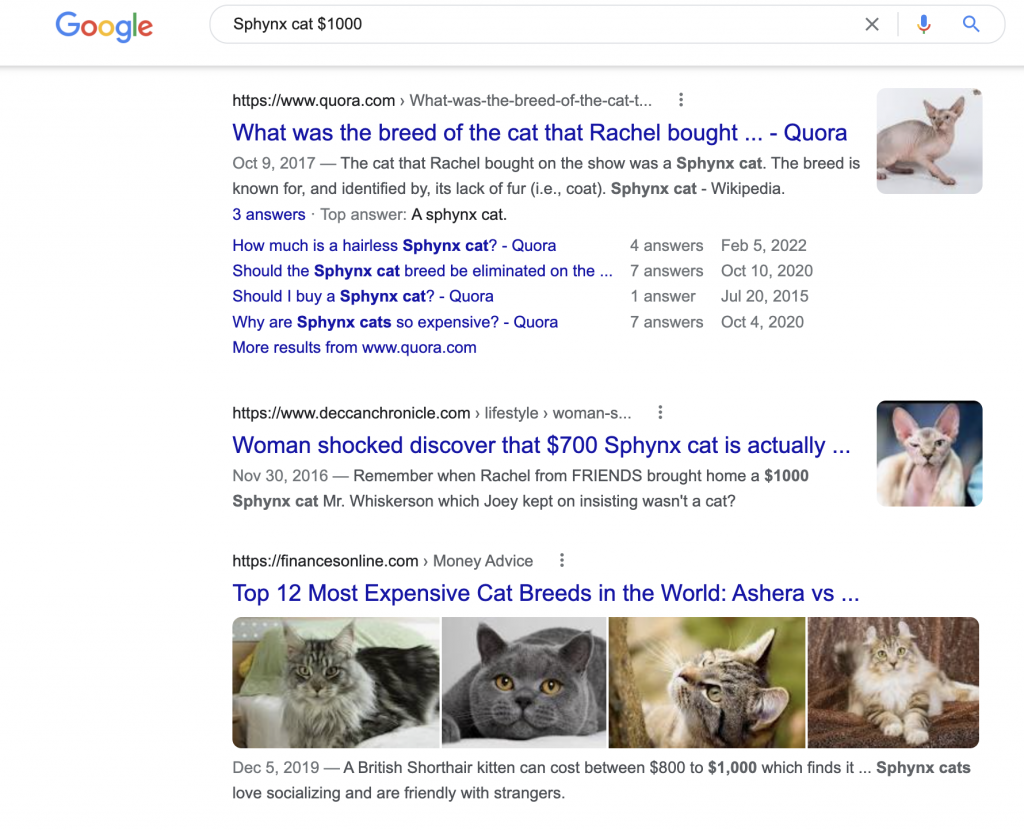
Number..Number Operator
The (number)..(number) operator shows you results for an interval of numbers. In this case, we were looking for the winners of the CFA International Cat Show between 2016 and 2021. This operator is great if you are looking for data in specific intervals.
The CFA International Cat Show winners 2016..2021

Site: Operator
This operator (site:) followed by the website URL is very popular for SEO professionals. It will return all the pages of a website that Google has indexed. In this case, we are looking for all the pages in the Cat Fanciers Association website.
site:cfa.org/

Quotes + Site: Operators
The “exact match” site operator combined with the “site:” operator will give you results for those exact words in the indicated website. So, we will only find the pages about sphynx cats on the CFA website.
“Sphynx cats” site:cfa.org
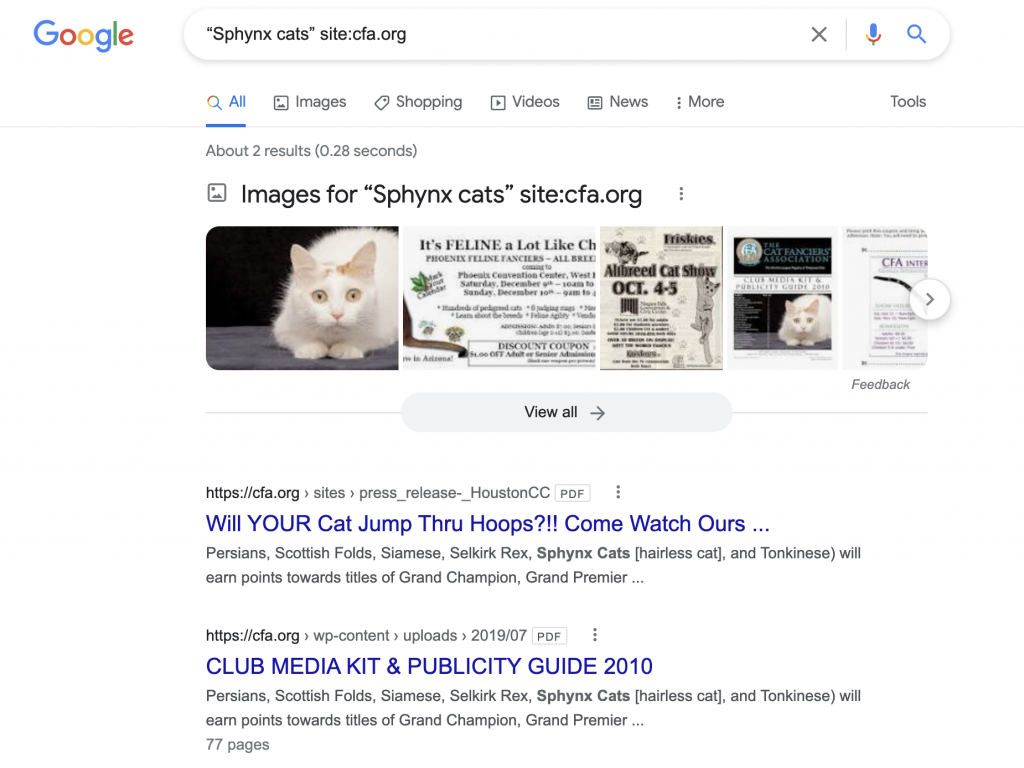
Keyword on Site: Operators
In this case, we’re looking for the page from the CFA website that Google considers more relevant for the keyword cat. It’s also very important for SEO work, as it shows you your pillar page in the specified website URL.
Cat site:cfa.org
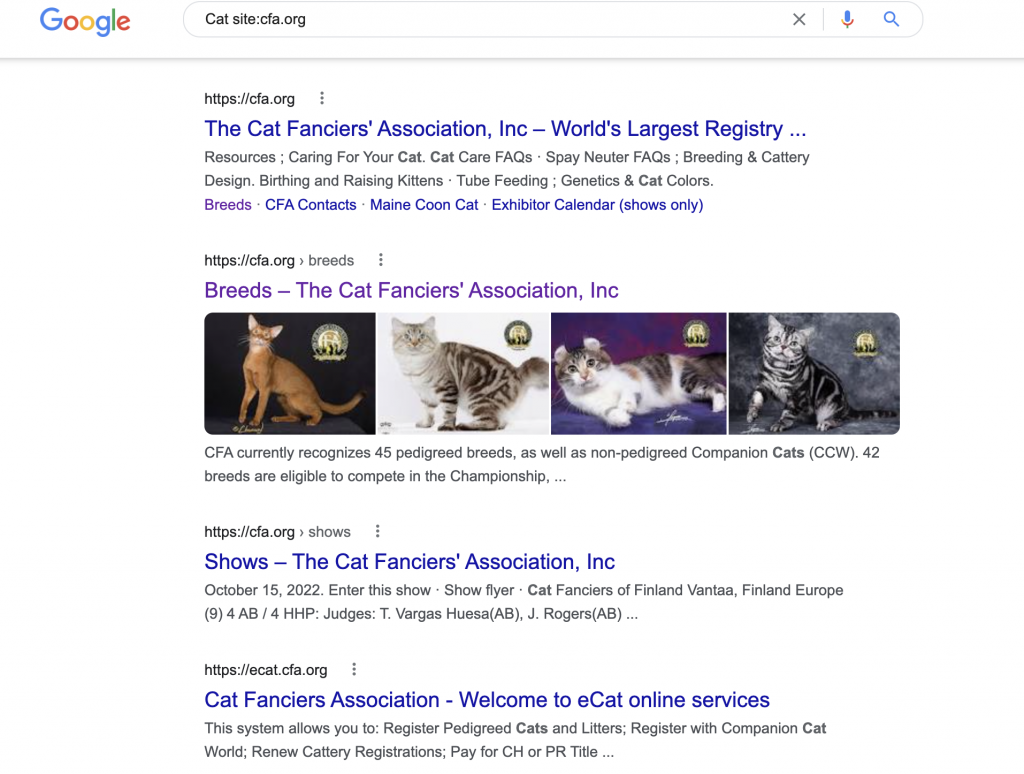
Related: Operator
The “related:” operator looks for websites that are similar in subject to the one we mentioned. This is the UK website for cat protection in the country, so the related pages will be related to cats and their conservation. Especially relevant when it comes to entity SEO.
related:cats.org.uk/
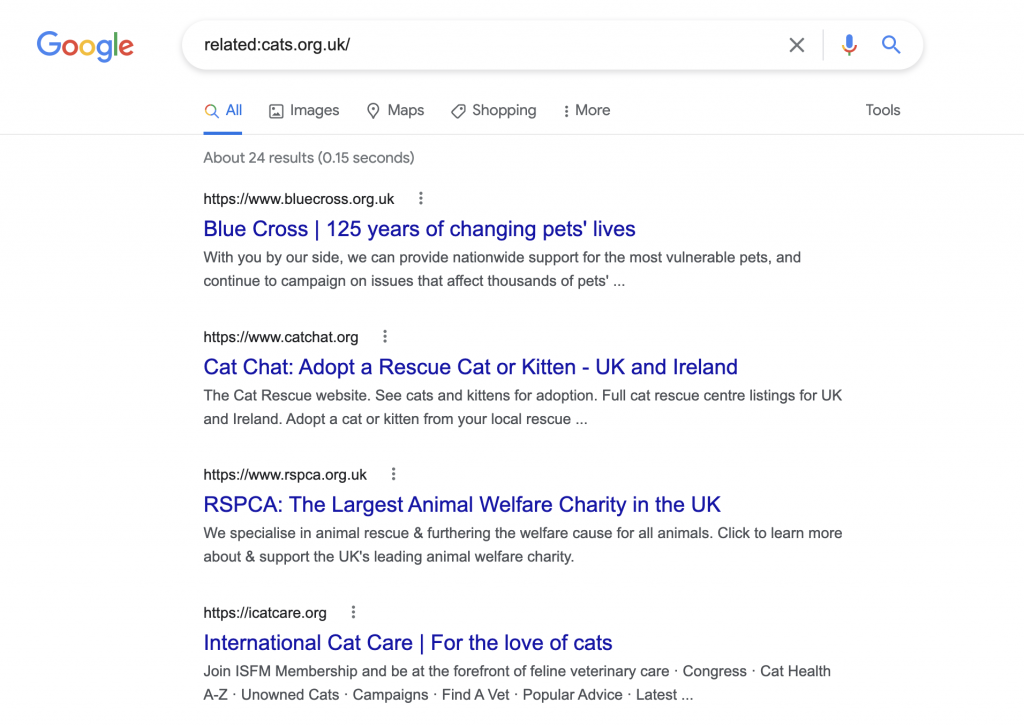
Cache Operator
The “cache:” operator will help find the latest cached version of a website in Google. Of course, for this operator to work, the website needs to be indexed.
cache:cats.org.uk


Define: Operator</h3
The “define:” operator gives you the meaning of a specific word or term. The result is then shown in a “Dictionary” entry.
Define:cat
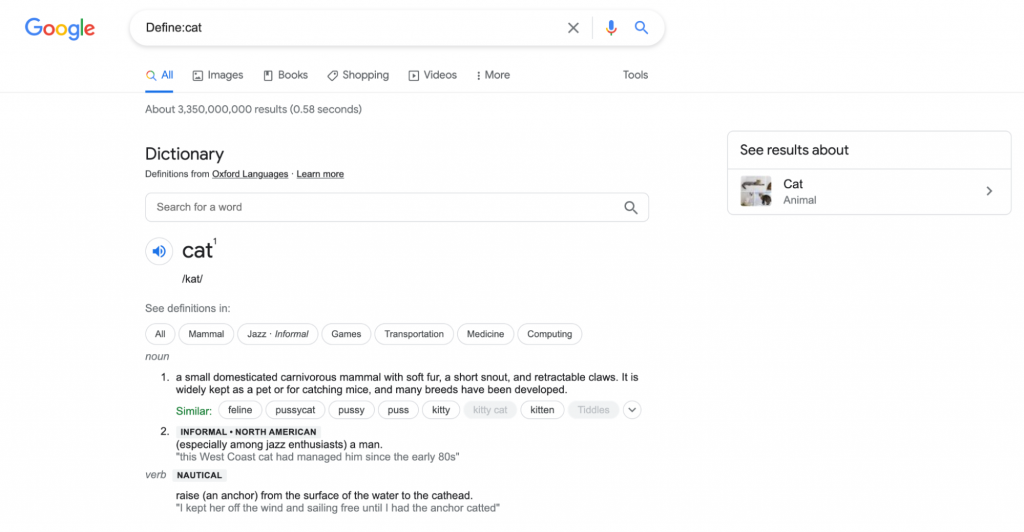
Filetype: Operator
The “filetype:” operator will provide you with files about cats that match the filetype you have indicated. However, the filetype operator only works for certain file types like pdf, doc, docx, xls, xlsx, and similar.
Filetype:pdf will find all related pdf documents for the search keyword (in this case, “cats”).
Cats filetype:pdf
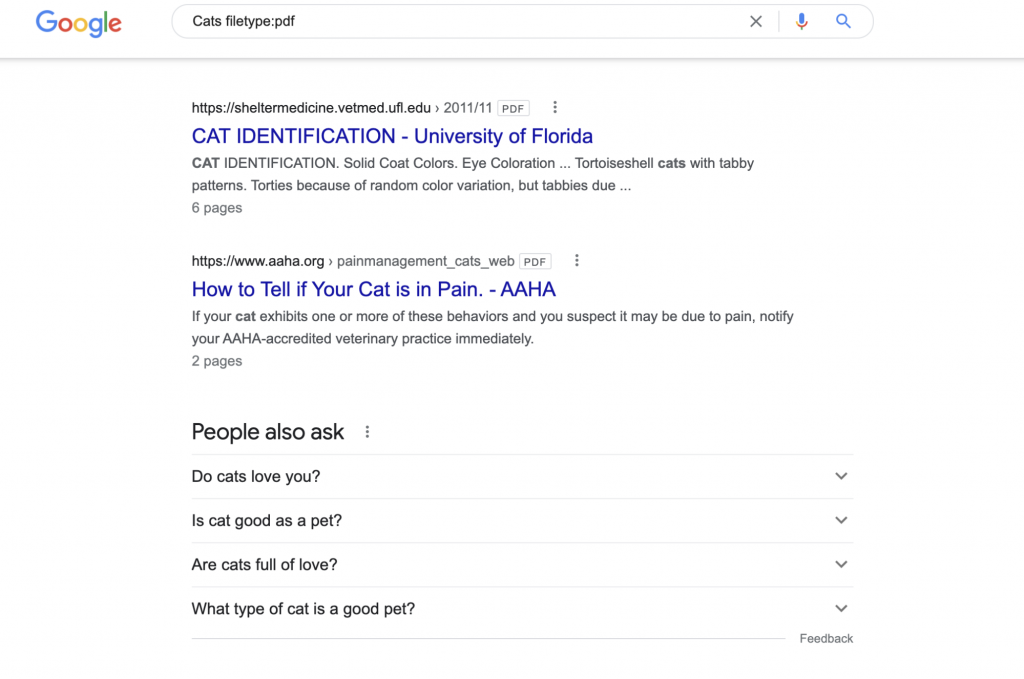
Site: + Filetype:
When you use these two operators together, you’ll find files with the .pdf filetype in the website you indicated. It’s quite useful when looking for a specific file in a website you already know.
site:cfa.org filetype:pdf
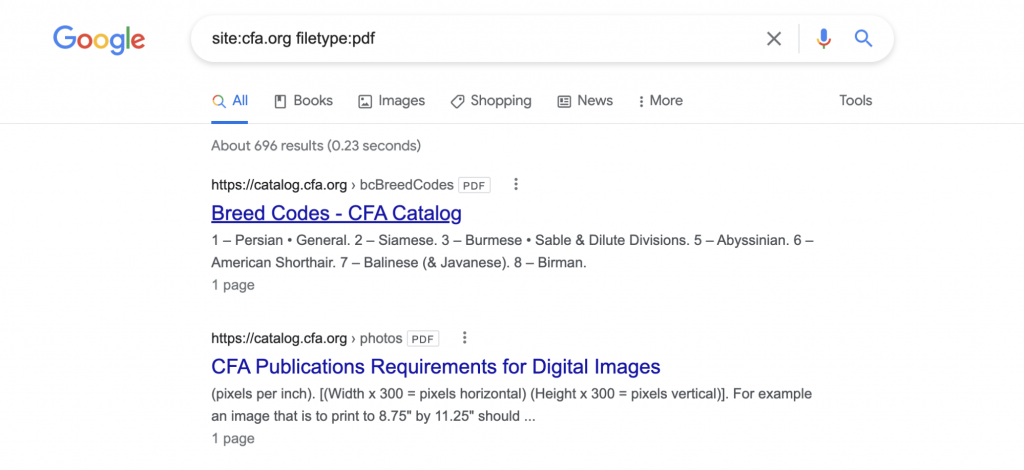
Ext: Operator
The “ext:” operator works exactly the same as the filetype one. It basically looks for a specific extension in the files, which is the same as the one used in the filetype command.
width=”1024″ height=”470″ />
cat breeds ext:pdf
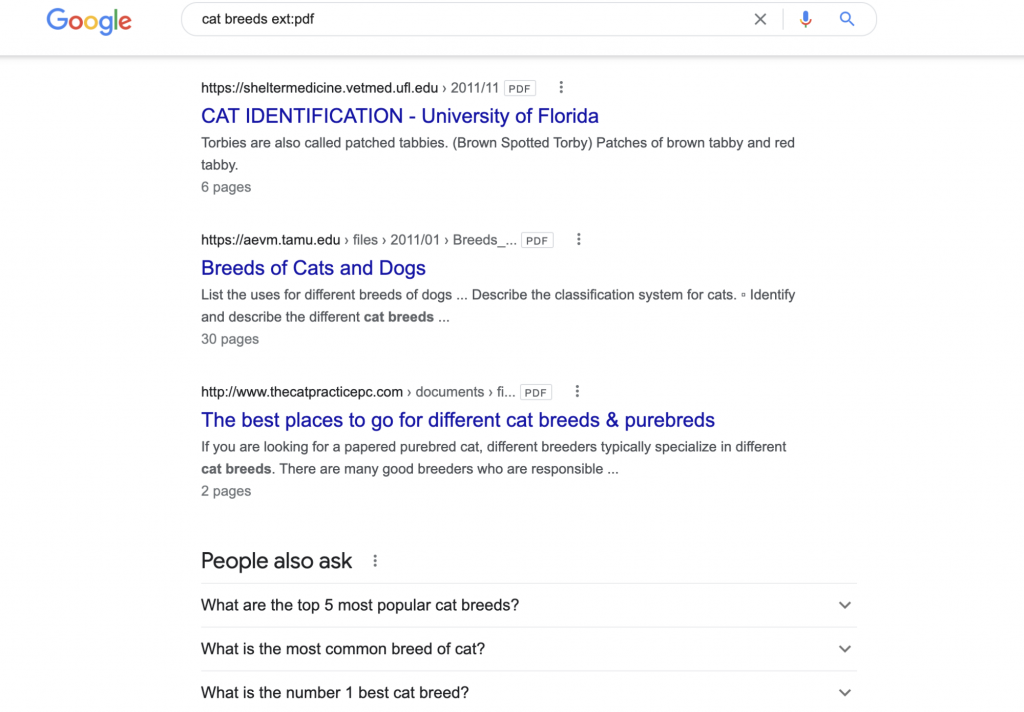
Intitle: Operator
The “intitle:” operator looks for pages that have a specific text in the title. In this case, we found pages on the web that have the text “sphynx cats” in the title. However, you might want to add “” to force the search to show only exact matches.
Intitle:sphynx cats
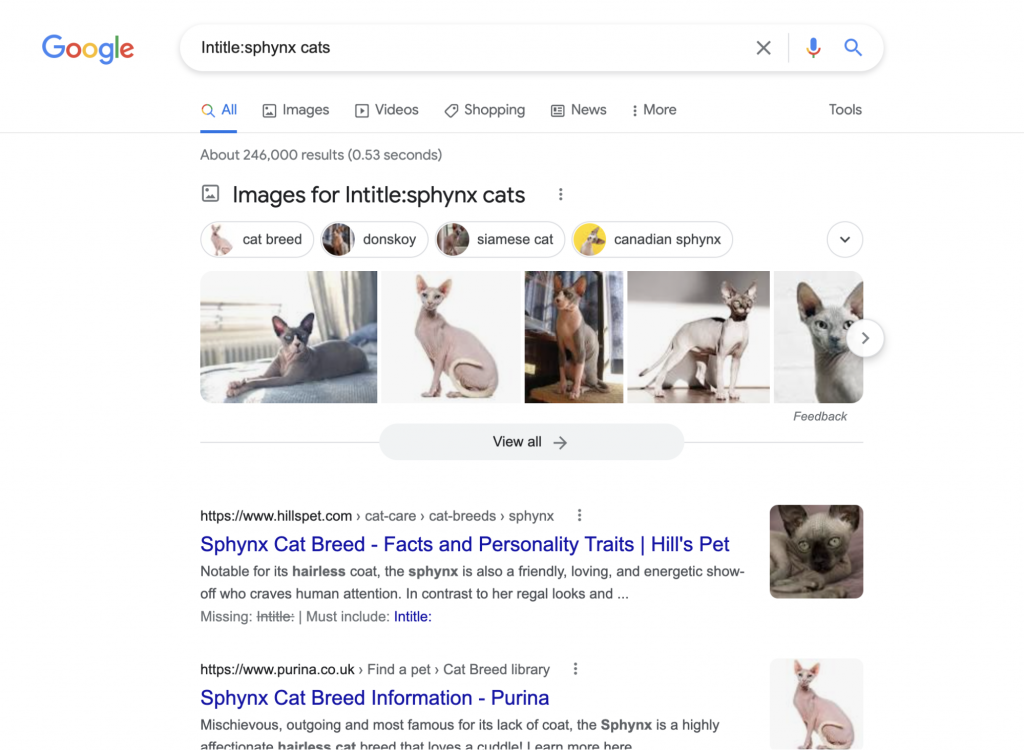
Allintitle: Operator
The “allintitle:”operator will find only pages that contain all the words in the query. When you have several search terms that you want to find in the title of the same page, this is the operator you should use.
Allintitle:bombay cats black cats
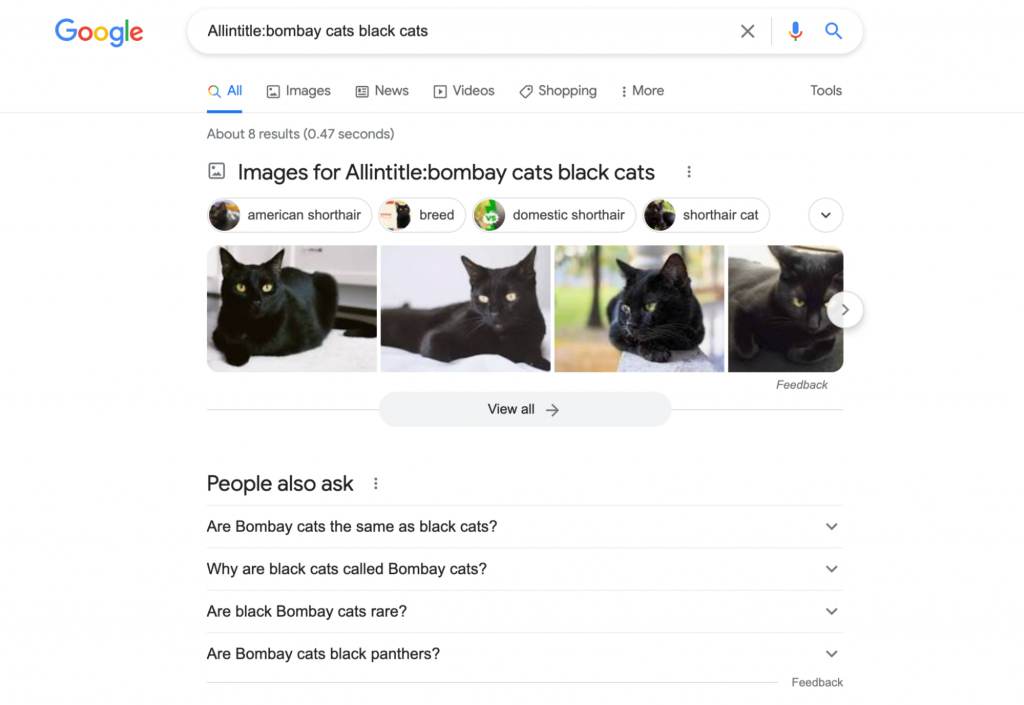
Inurl: Operator
The “inurl:”operator will show you results that have the search term in the URL. It can be interesting to match with other kinds of searches for SEO purposes.
This operator does not force an exact match, as it can identify related terms and synonyms.
Inurl:bombay cats
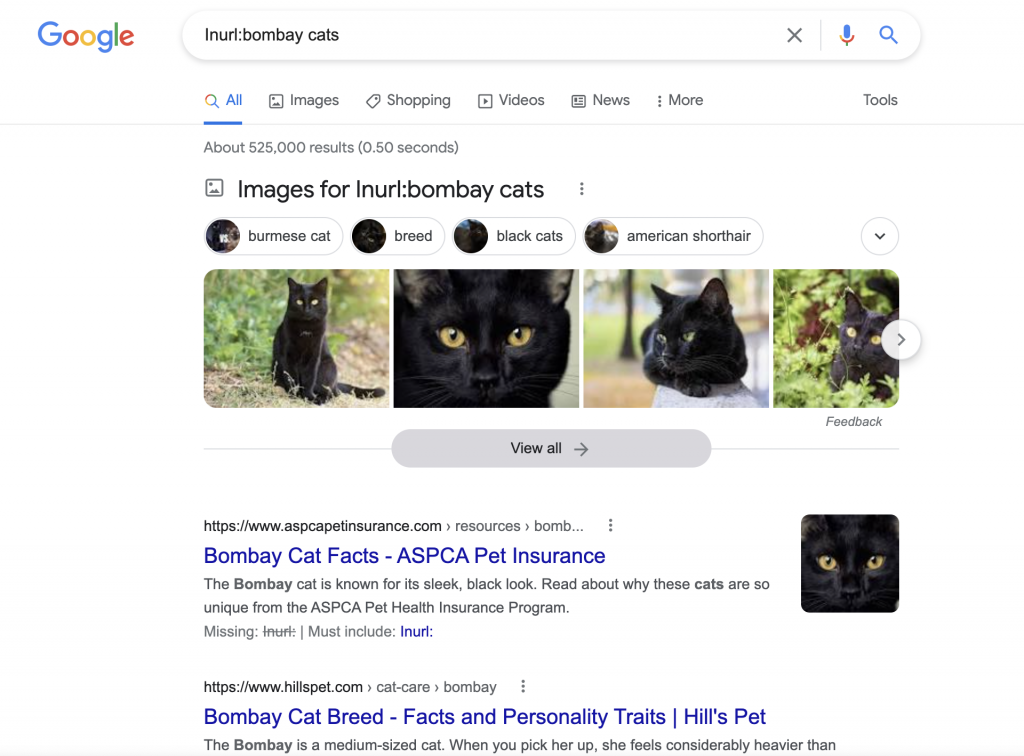
Allinurl: Operator
Like intitle and allintitle, allinurl will only show results that include all the keywords specified. Ideal for a more precise search.
Allinurl:bombay kittens siamese kittens
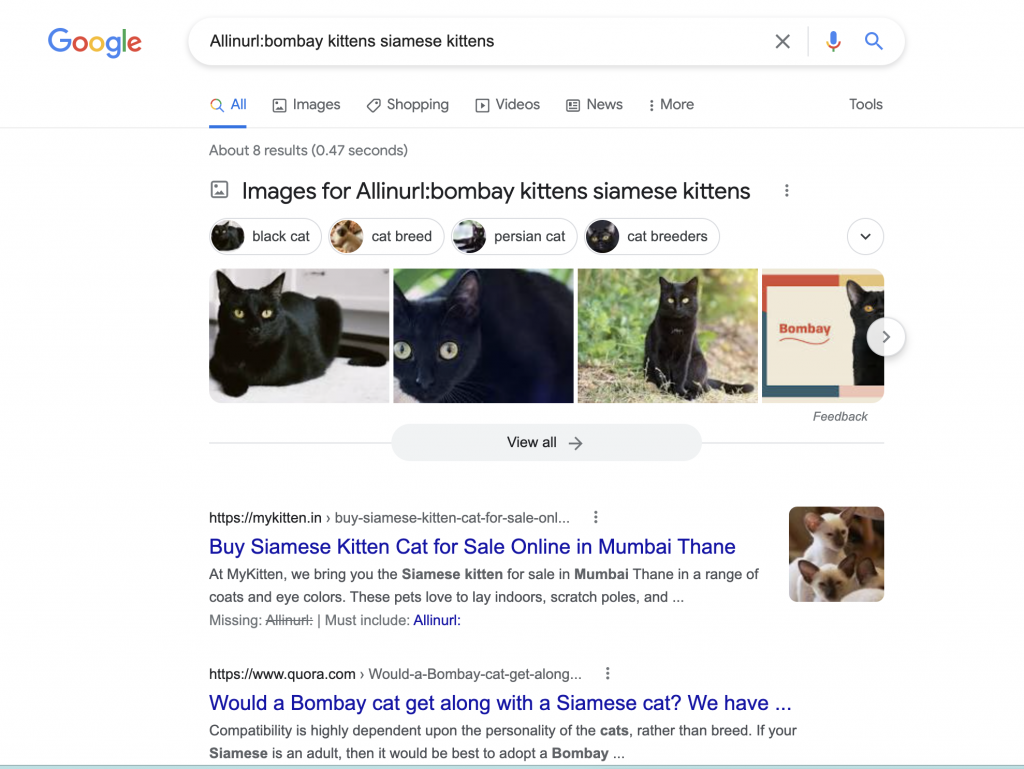
Intext: Operator
This is a similar query to “intitle”. However, in this case, the search term should be found in the page, not necessarily in the URL or the title.
Intext:russian blue cats
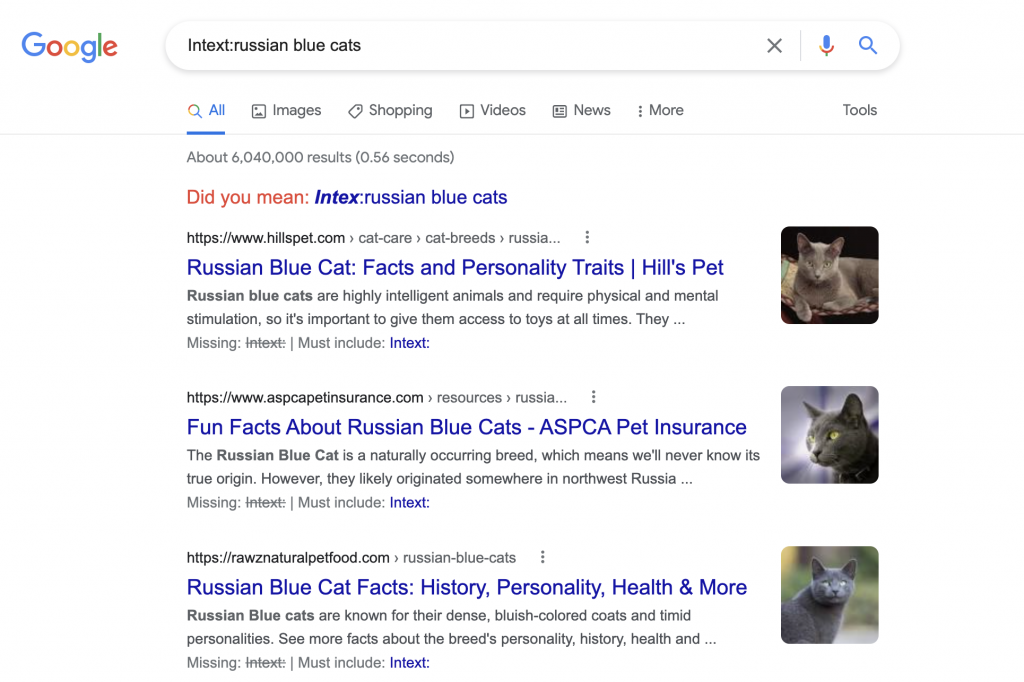
Allintext: Operator
This operator, in a similar fashion to the previous ones, will include all the specific words in the page “body”.
Allintext:russian blue scottish fold
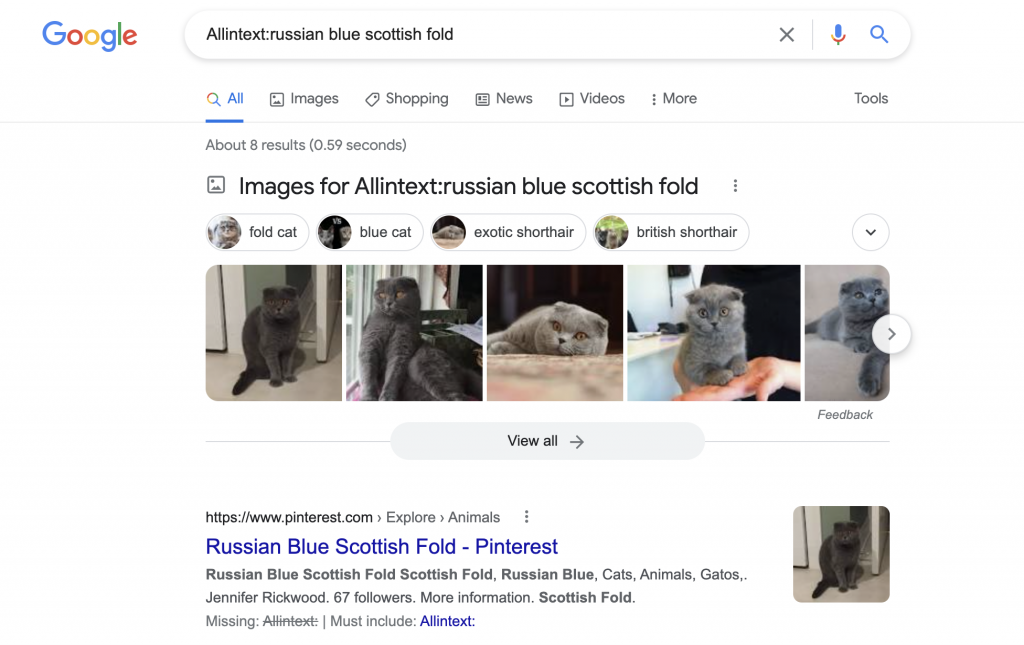
Other Useful Search Operators
In/To Operator
You can use this operator to convert currencies. Let’s say in this case we want to know how much is $10 in Brazilian real. This is the result:
in/to
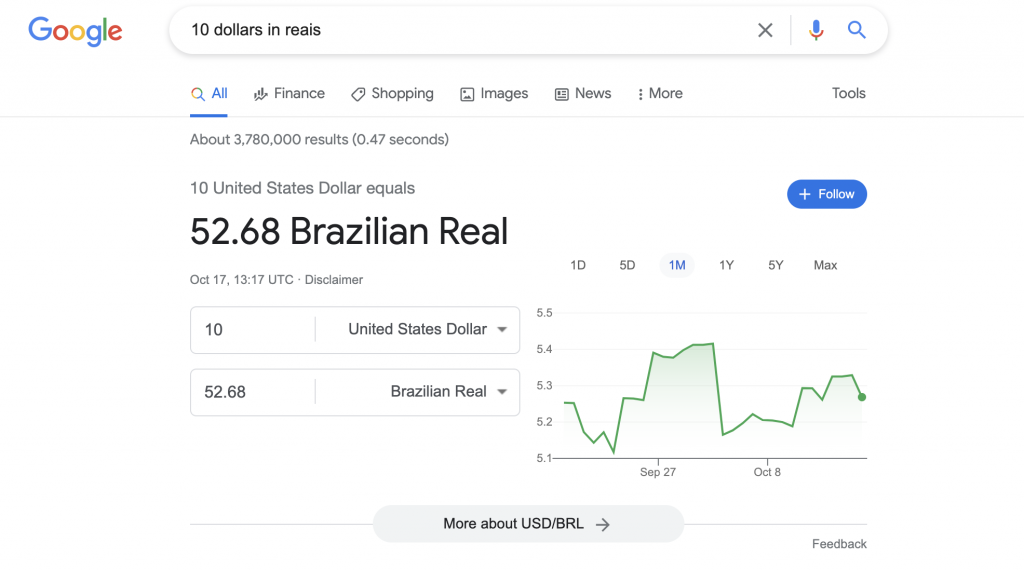
Weather: Operator
This operator gives you the weather predictions for a specific location.
weather:Lisbon
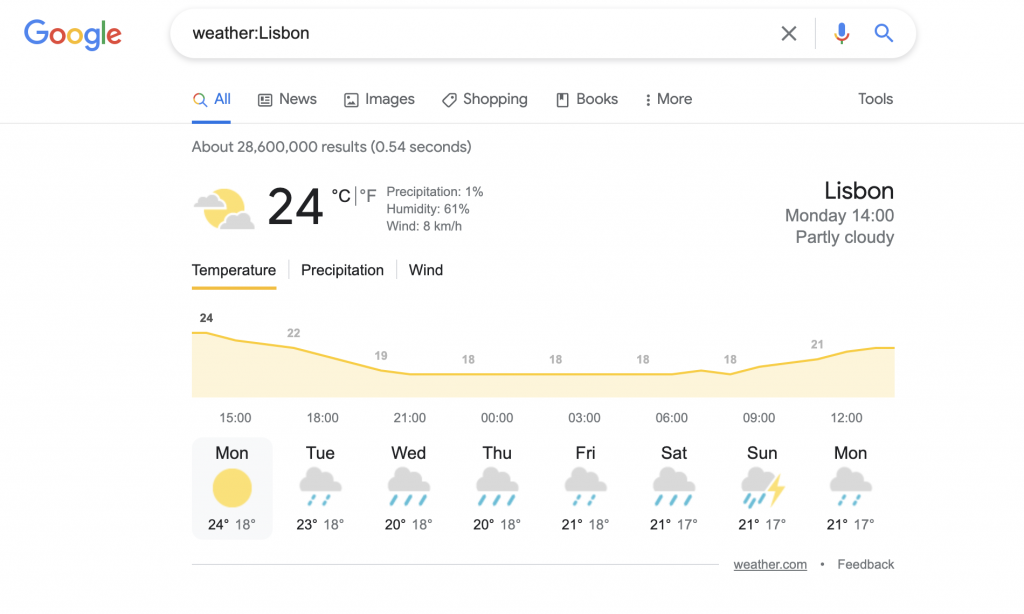
Stocks: Operator
The stocks operator allows you to check the value of the stocks using the brand’s ticker symbol in the stock market.
stocks:TSLA

Map: Operator
This operator shows you a map of a specific location.
map: Lisbon
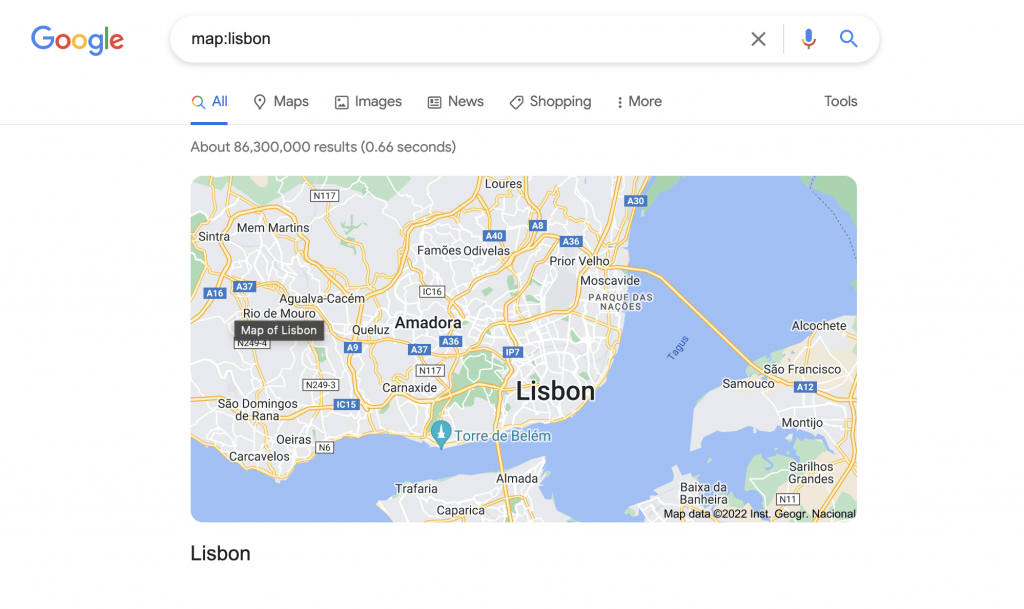
Movie: Operator
The movie operator looks up information about a specific film. If it is showing in theatres, you’ll also get the showtimes in cinemas near you.
movie:Cats

Wrapping Up
As we showed, there are many ways to refine your Google searches and optimise your search practices.
92.42% of all the people on the internet use Google as their search engine. That’s a lot. So, by knowing these search tips, you’re ahead of the game, no matter what you are searching for.
Did we forget any main search operator? What are your thoughts? Use the comment box below or find us on Facebook, Twitter, and LinkedIn.


